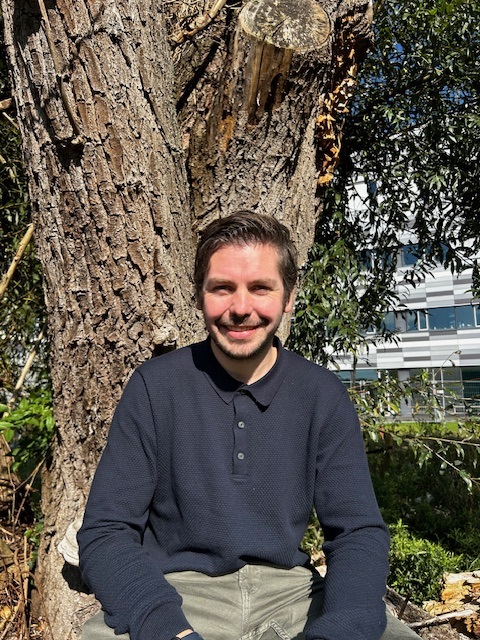
Could you introduce yourself?
I am Dr. Jeffrey Aalders and originally born in the Netherlands. I completed my PhD in June 2023 at Ghent University. During my PhD research I generated several human induced pluripotent stem cell lines which I employed to establish cardiac disease models. In August 2024, I joined Taghon’s research group as a postdoctoral researcher.
What is your role in the NOVISTEM project?
I will be working on the optimization of CAR T cell differentiation from human iPSCs as part of the NOVISTEM project. In particular, the role of TNF receptor 2 will be exploited to increase the efficiency of in vitro T-cell development from iPSCs.
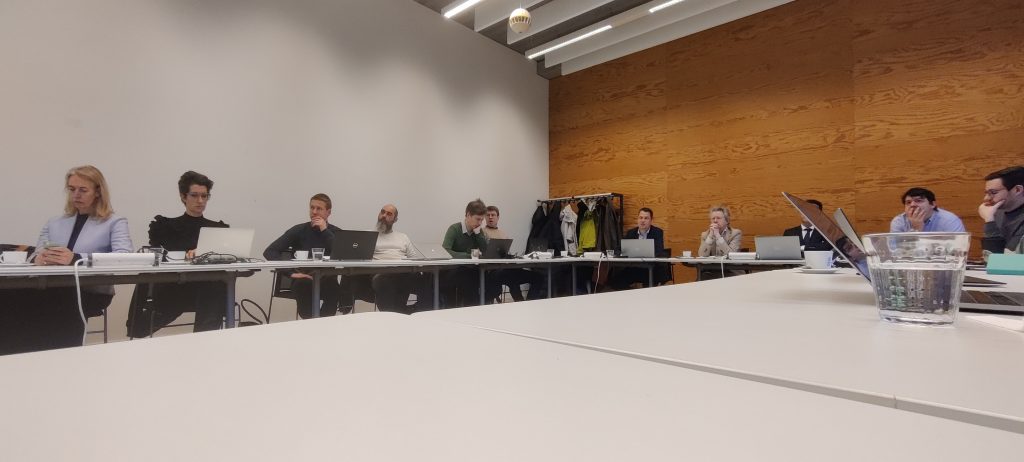
The NOVISTEM project participated in the EIC beneficiaries meeting with Michiel Scheffer (head of the EIC Board) that took place at the Tech Lane Ghent Science Park. Together with other beneficiaries, we provided feedback and testified on our experiences with applying for and executing a EIC project. We hoped this could inform Scheffer on how to potentially improve or streamline the programs. Following the meeting, we had a site tour to QustomDot, Magnel lab, cleanroom and iTower photonics labs.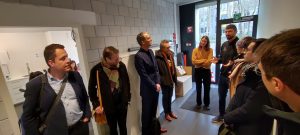
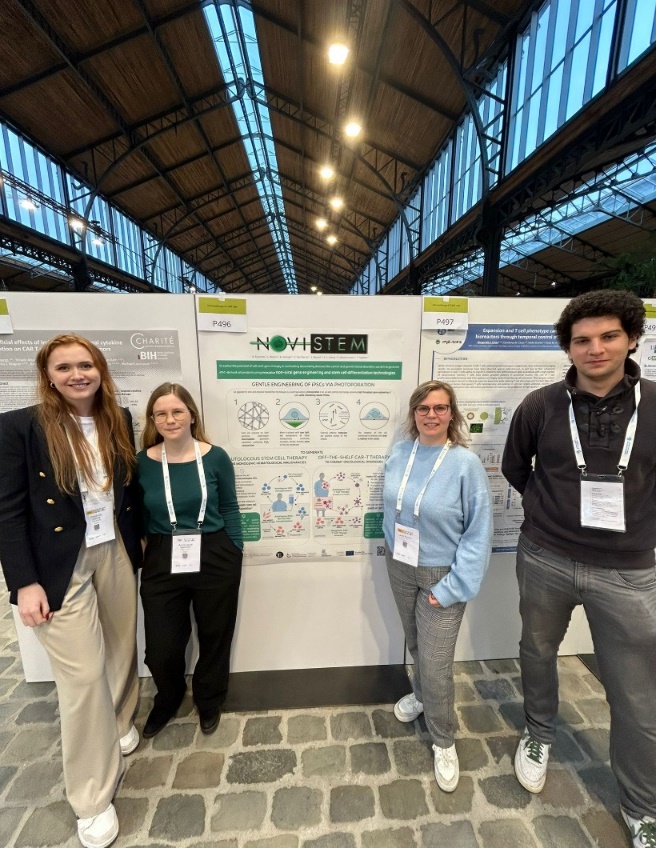
Last week, the doctoral fellows of the NOVISTEM project presented their first poster at the ESGCT conference in Tour&Taxis Brussels. In addition, Chloe also displayed a poster herself regarding the first promising data that she generated on the photoporation efficiency of iPSCs.
In these fully packed 4-day lectures with esteemed invited speakers, the students came in contact with the European cell and gene therapy environment and gained insights into the important aspects associated with translational applications. Via the information booths of the sponsors, they were able to explore the available support for their experimental work or for more later stages of their project. All in all, it was a remarkably fruitful conference, inspiring further research within the NOVISTEM project and stimulating potential collaborative connections.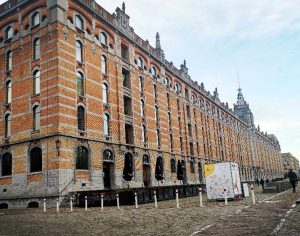
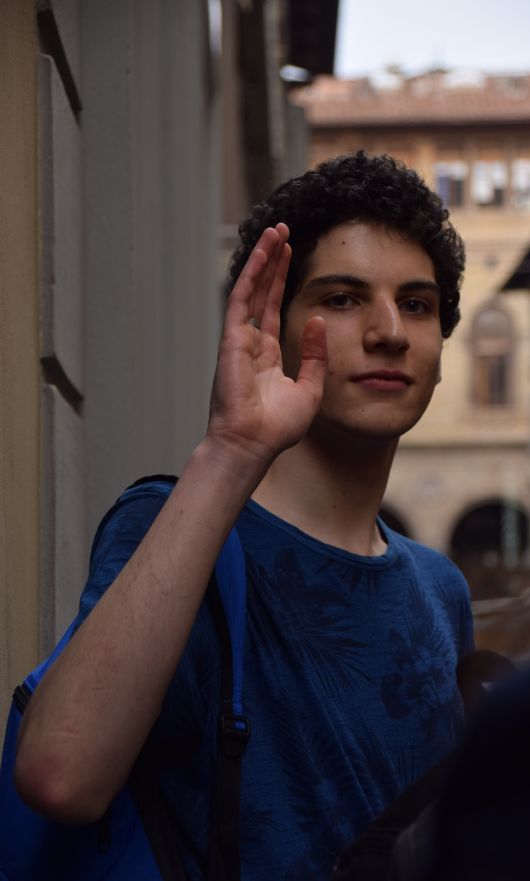
Could you introduce yourself?
I am Ahmin Ahmad and a master in Biophysics, Biochemistry and Biotechnology, graduated with greatest distinction in 2020 at the Katholieke Universiteit in Leuven. In February 2023, I started my PhD in the lab of Kevin Braeckmans and joined the other NOVISTEM students.
What is your role within the NOVISTEM project?
I am currently working on the delivery of large effectors to iPSCs through a novel physical transfection modality termed photoporation developed by the Braeckmans lab (Ghent University, Belgium). I focus on obtaining photothermal electrospun nanofibers (PEN) to introduce CAR-constructs into iPSCs by photoporation.
What is a recent achievement that benefits the NOVISTEM project?
Recently, I have obtained an FWO PhD fellowship in strategic basic research, which is a Belgian research funding agency that support researcher financially and stimulates international cooperation and mobility. The fellowship will allow me to genetically manipulate universal iPSC-derived therapeutic cells via nanofiber photoporation.

Every few months, all NOVISTEM members sit together to discuss their latest progress and provide valuable input on practical and scientific ground. This time specifically it was the 4th meeting and the students made a slideshow to present their obtained results for each subtask within the NOVISTEM project. The first draft of the poster was evaluated and advances of the website were reported.
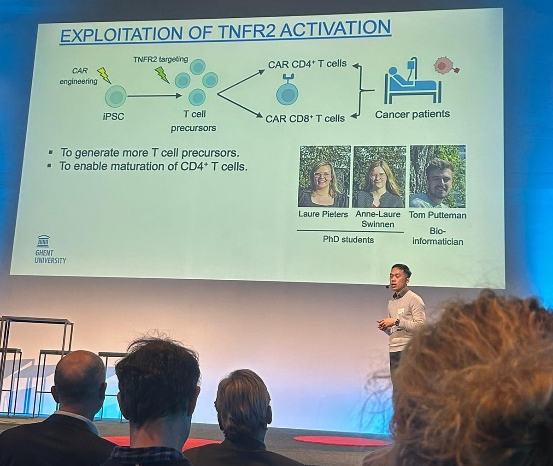
On the 17th of March, the NOVISTEM project outline was presented on the 2nd GATE Partnering Event in Ghent. Attended by researchers extending the UGent, UZ Gent, imec and VIB, the day was filled with topics concerning break-through science in gene and cell therapy, and regenerative medicine. The event enabled the communication with various industrial stakeholders within the Belgian ATMP landscape. 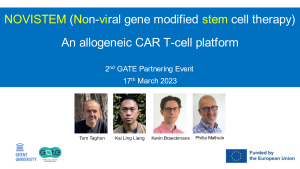
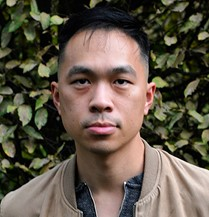
Could you introduce yourself?
I am Dr. Kai Ling Liang and a EU long-term resident from Malaysia. In 2016, I was conferred a PhD degree in cancer biology by University College Cork, Ireland and joined Taghon’s research group since then as a postdoctoral researcher.
What is your role within the NOVISTEM project?
I have a profound research interest in normal and malignant haematopoiesis. Currently, my research focus is using iPSCs to understand human haematopoiesis and to address hematopoietic disorders.
In addition, I guide the PhD students associated with this project and train them to acquire the necessary experimental techniques.
What is a recent achievement that benefits the NOVISTEM project?
In January 2023, I reported a novel role of intrathymic dendritic cell-biased hematopoietic precursors in supporting human early T-cell development, via crosstalk with immature thymocytes that express TNF receptor 2 (TNFR2). I further demonstrated that recapitulation of TNFR2 signalling enhances in vitro generation of T cell precursors from hematopoietic stem and progenitor cells. The findings have been published in Nature Immunology and contribute to the NOVISTEM project by revealing TNFR2 signaling as an intriguing target to enhance the in vitro T cell differentiation from iPSCs.
